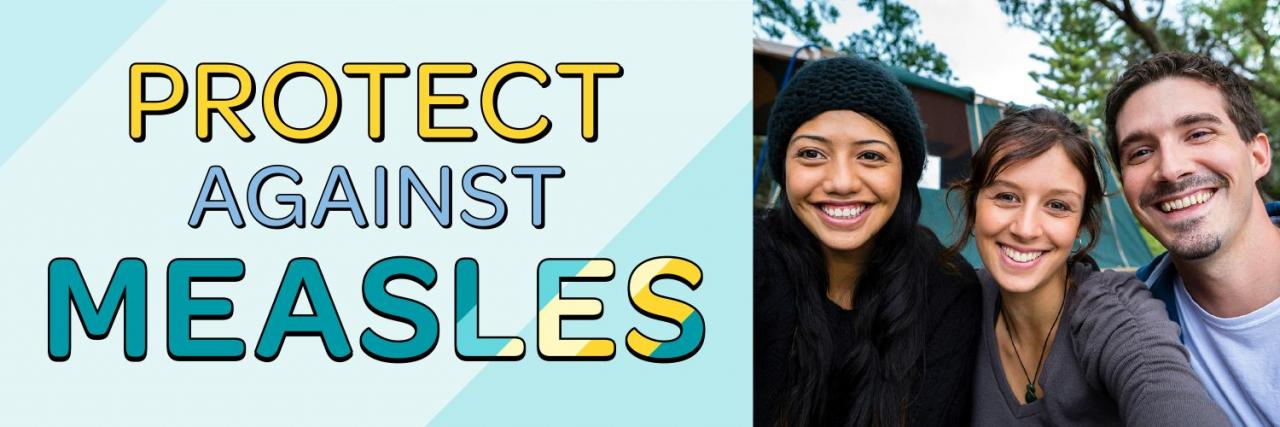Protect Yourself & Your Whānau From Measles
Protect Yourself & Your Whānau From Measles
If you were born between 1989 and 2004, you might not be protected against measles. It's a serious disease. It spreads very easily - it's very easy to catch.
Why should I have measles immunisation?
Watch Awatea and Meto talk about how to protect yourself against measles
Ministry of Health - Manatū Hauora video
Tame breaks down the facts on measles immunisations
In the following 2 videos, young people chat and text about having measles immunisation
In this video, a family talk about whether their teens have been immunised against measles
Lots of people born between 1989 and 2004 didn't get fully immunised when they were children. If you were born in this period, you are at risk of catching and spreading measles.
Ask your doctor, parent or caregiver if you had 2 doses of the measles, mumps and rubella (MMR) vaccine as a child.
If you don't know, it's best to get immunised. It's safe to have an extra dose of the MMR vaccine.
Some other countries only immunise against measles and rubella. So, even if you were immunised against measles overseas, make sure you get your free MMR in New Zealand so that you're protected from mumps too.
There are good reasons to get immunised.
You could get very sick if you get measles
You can have complications like pneumonia, seizures and swelling of the brain. People can die from measles.
You might make others very sick if you get measles
Some people can't have the MMR vaccine because they're very young or have a disease that affects their immune system. Being immunised, means you won't catch measles and spread it to vulnerable people.
If you get measles when you're pregnant, it could affect your baby
You may go into labour early or your baby may have a low birth weight. This can have life-long impacts on your baby's health. You can't have the MMR vaccine when you're pregnant.
You could miss out on earning, learning or having fun
If you haven't had the MMR vaccine and are in the same room as someone with measles, you will have to isolate for up to 2 weeks. This is to make sure you don't have measles and can't pass it on to others.
We recently had a measles outbreak
In New Zealand, more than 2,000 people got measles in 2019. 700 had to go to hospital. Māori and Pacific peoples were particularly affected. We need 95 percent of people to be immune to reach 'community immunity' (sometimes known as 'herd immunity') and help stop future outbreaks.
Measles is only a plane ride away
Measles is still common in many countries. People can bring it into New Zealand without knowing. You could also be exposed if you travel to certain countries overseas.
Where can I get my measles immunisation?
You can ask your GP for a measles immunisation. It's free.
You can also get a free immunisation at some pharmacies if you're 16 or older. Check if your local pharmacy offers the MMR vaccine (or check out the map below). You can just turn up. You don't need an appointment. The pharmacist will take you to a private space in the pharmacy to do this.
A health professional may offer you a free measles immunisation when you're at a community event, or at school or work. See events happening near you on the map below. If you don't know if you've been fully immunised against measles, it's best to get immunised. It's safe to have an extra dose of the MMR vaccine.
Protect those you care about from measles, a disease much more contagious than COVID-19.
This page last reviewed 22 February 2021.
Do you have any feedback for KidsHealth?
If you have any feedback about the KidsHealth website, or have a suggestion for new content, please get in touch with us.
Email us now
